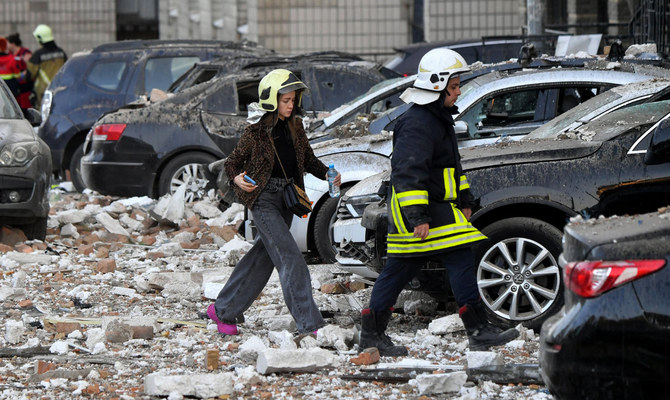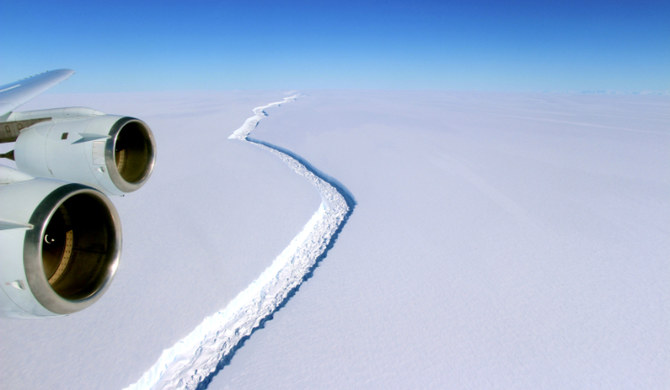
Experts in climate change and global security threats have long seen climate change as a future risk factor. Today, however, it is clear that climate change poses an immediate security threat to countries around the world. It is no longer a “someday” threat; it is a “right now” threat.
Highlighting the reality that climate change is already affecting the world, with a direct impact on people today, the US’ National Aeronautics and Space Administration (NASA) and National Oceanic and Atmospheric Administration (NOAA) this month released data showing that “Earth"s global surface temperature in 2018 was the fourth warmest since 1880.” Furthermore, “the past five years are, collectively, the warmest years in the modern record.” The agencies added that the warming is largely due to human activity.
In October, the UN’s Intergovernmental Panel on Climate Change (IPCC) released a report that found that “human activities are estimated to have caused approximately 1.0 degrees Celsius of global warming above pre-industrial levels,” adding that “global warming is likely to reach 1.5 C between 2030 and 2052 if it continues to increase at the current rate.” Furthermore, limiting warming to 1.5 degrees “would require rapid, far-reaching and unprecedented changes in all aspects of society.”
Most countries’ leaders accept that anthropogenic climate change is real and is having immediate impacts. Although the US president and some key members of Congress continue to question whether anthropogenic climate change is occurring, the US intelligence and defense agencies have been warning about climate change as a security threat for years. Several reports from US government agencies have recently highlighted the short-term and long-term security effects of a warming planet.
The Worldwide Threat Assessment of the US Intelligence Community, released in January, assessed that “global environmental and ecological degradation, as well as climate change, are likely to fuel competition for resources, economic distress, and social discontent through 2019 and beyond.” A January report from the Department of Defense noted that the “effects of a changing climate are a national security issue,” and reported that flooding, drought and wildfires pose the most significant environmental threats to US military installations. During a Feb. 12 hearing, the Commander of US Indo-Pacific Command noted that climate change has an impact on US military requirements and operating environments within his command’s area. He became “the 21st military official to raise concerns about climate risks during the current administration,” according to the Center for Climate and Security.
The risks that climate change poses to human security, economics and geopolitics are extensive and global
Kerry Boyd Anderson
In December, the US Government Accountability Office produced a report for Congress on the “long-range emerging threats” to the US, based on threats identified by a variety of government agencies. The report included climate change as a key threat, noting that the extreme weather events that climate change makes more likely could threaten “food security, energy resources, and the health care sector,” among other risks.
Climate change poses security risks for countries around the world, not just the US. Sea level rise will directly affect many coastal cities and island nations. Severe droughts will intensify conflict risks in Africa, the Middle East and other parts of the world. Extreme weather events and the longer-term consequences of climate change will drive human migration patterns. The risks that climate change poses to human security, economics and geopolitics are extensive and global.
Many people around the world are well aware of this. Last week, the Pew Research Center released a report based on a 2018 survey of 26 countries — in 13 of those countries, people identified climate change as “the top international threat.” Pew found that a growing number of people are worried about climate change, noting that a median of 67 percent of respondents viewed climate change as a major threat, up from 56 percent in 2013.
In some cases, it appears that countries that are experiencing some of the most immediate effects of climate change, such as Kenya and Australia, were more likely to view climate change as the top threat. The Pew report also noted that, in several countries, people with more education were more likely to see climate change as a threat than people with less education. In the US especially and, to a lesser extent, in Europe, ideological divides also affected attitudes, with Republicans and Republican-leaning Americans 56 percentage points less likely than Democrats and Democratic-leaners to see climate change as a major threat to the US. In Europe, supporters of far-right populist parties were less likely than other citizens to view climate change as a top risk.
Countries will always face a variety of threats, such as terrorism, cyberattacks, economic crises and war. It can be difficult to maintain climate change as a top policy priority when governments are faced with other threats, which often are more short-term and demand immediate attention. However, climate change is now both a short-term and long-term threat, with immediate impacts today and through the coming decades. Climate change not only poses direct security risks but is also a threat multiplier, exacerbating other risks, such as economic challenges, infrastructure needs, human migration, and disease. Governments that effectively face these challenges will develop ways to respond simultaneously to climate change risks and other security concerns.
• Kerry Boyd Anderson is a writer and political risk consultant with more than 14 years’ experience as a professional analyst of international security issues and Middle East political and business risk. Twitter: @KBAresearch
Disclaimer: Views expressed by writers in this section are their own and do not necessarily reflect Arab News" point-of-view












